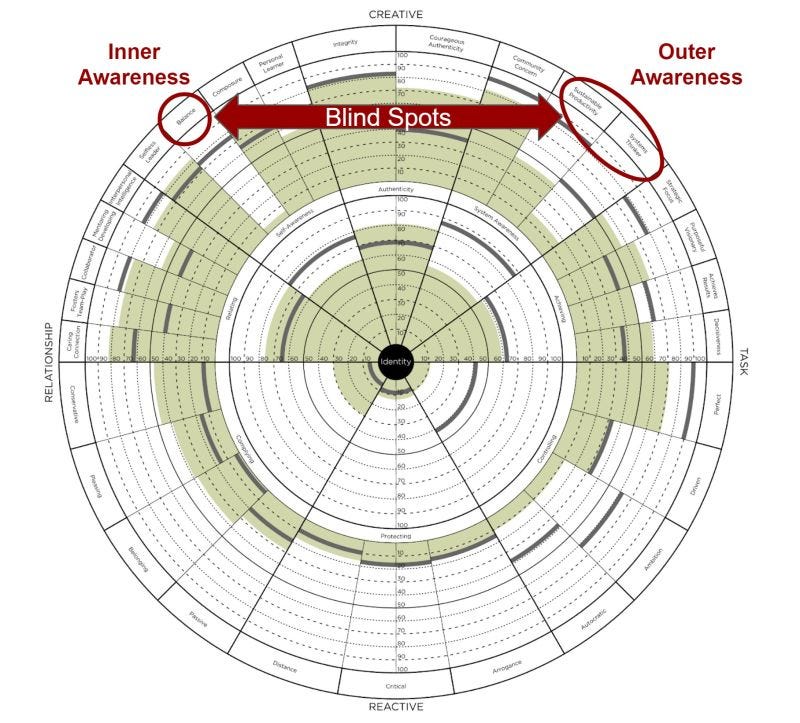What you can't see in yourself, you're blind to in the system
Everyone wants to be a systems thinker - no one wants to spend time on self-awareness.
During team sessions and coaching conversations, I'm a broken record regarding the utility of self-awareness. Our capacity to recognize and name what's happening in our inner experience governs our ability to accurately see the systems around us.
Self-Awareness and Systems Awareness are two sides of the same coin. When leaders come to me for suggestions about sensing systems more effectively, we always start with observing and making meaning from their inner state.
The profile below is from a senior leader who, by all accounts, is highly effective at his job. His people appreciate his care, courage, and vision for the organization. They also comment on challenges such as workload, the pace of change, and balancing competing priorities.
During our LCP debrief, we focused on the gap in Balance and how that same blindspot showed up in how he approached systems. Growing up in a family that demanded excellence and exhaustive effort, the notion of being "good enough" or even taking the occasional break was a foreign concept.
He descended from generations of farmers who scraped a living from an unforgiving landscape. If work was not exhausting, it was not valuable - and to not be valuable was unthinkable. We explored how this narrative impacted his personal choices and the organization's culture.
The unlocking move came when we discussed his two sons (in their early 20s). Both inherited the family legacy of extreme work and no rest.
He could see the price they paid - even when blind to it in himself. He wanted a different life for them. He wanted to model a new relationship between work and rest. He wanted to change the culture at his company. He wanted to do everything immediately! We are still working on that last bit.
How do you practice inner awareness?
(profile edited to ensure confidentiality).



